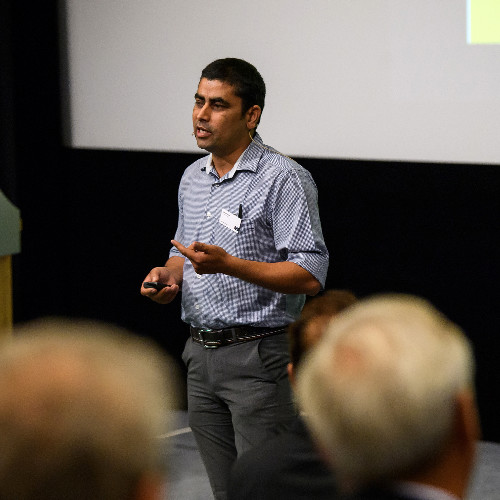Aadhaar based e-KYC service – The much needed change catalyst for financial inclusion!
by Lokesh Singh and Akshat Pathak
Jul 2, 2014
4 min
Aadhaar based e-KYC service can turn out to be much-needed change catalyst for financial inclusion in rural India but it will be interesting to see how this story unfolds.
It is a well-documented fact that a low level of financial inclusion in rural India is primarily due to low penetration of formal financial institutions, especially the banks. Another equally important reason for this is lack of acceptable proof of identity and address documents. Though a number of initiatives had been endeavored by the Central / State Governments and the banking regulators to counter the aforesaid challenge, the problem remained largely unresolved.
In this context launch of Aadhaar based e-KYC service (electronic repository of demographic details and photograph verifiable through biometric authentication) could prove to be cure-all in order to reduce the risk of identity fraud, document forgery, and instill paperless KYC verification.
Reserve Bank of India (RBI) had communicated to all banks (excluding RRBs), payment system providers and prospective prepaid payment instrument issuer to treat the information made available from UIDAI as an ‘Officially Valid Document’ under the Prevention of Money Laundering guidelines to open a bank account.
Further on, recently released report of the Nachiket Mor Committee on “Comprehensive Financial Services for Small Businesses and Low-Income Households” made some concrete recommendations to enhance the spread and use of formal financial institutions.
The most revolutionary, and therefore the most talked about, the recommendation is the provision of a “Universal Electronic Bank Account” (UEBA), for each adult Indian using Aadhaar as e-KYC.
In a recently released blog we had mentioned, it would be a leap of faith by a bank/few banks to take this lead of e-KYC. Good news is that at least one bank has already done this and it is one of the largest private sector banks, Axis Bank.
The case of Mrs. Boudevi is not an ordinary one. Rather in times to come by it may prove to be a historic one. She is the first person whose account opened through e-KYC facility of Aadhaar. In coming few years it may be a thing of yore that it used to take a minimum of 15 days for lucky ones to open accounts. And for the unlucky ones, those who did not have proper documents they could very well remain without accounts. And that’s how it has been till now.
This is precisely what Aadhaar as e-KYC is set to change. And now as it is done we can say it is good start and leap of faith. It goes against the basic fulcrum of Indian banks as they are not to put faith in records of some other entity. That UIDAI has a high level of data integrity and security definitely helped in this development.
Now that it is out of the way what comes next? What exactly banks can expect in return? Why are they more likely to lap up this opportunity? We may deconstruct this going further.
Why banks should adopt this? Because private Banks are at a disadvantageous position in comparison to public sector banks in terms of their outreach owing to two prime reasons. One is late entry and second is limited/restricted access to unlimited capital to deepen their outreach. But private banks can turn this disadvantage into an advantage with the use of technology and e-KYC is just one of them.
On the question of what comes next, definitely, banks look at it in the context of returns. With the use of Aadhaar as e-KYC banks can deepen their outreach in the unbanked segment of the population. In the short run, it will help them in meeting their social banking targets but banks will be missing the opportunity if they stop at that. They should start looking at this segment as potential customers. As is fairly well documented in our studies and otherwise also poor do save and they save for various purposes, hence they need access to financial products. It can even be argued that access to financial services should be fundamental right. Hitherto unbanked population could not have access in want to not having KYC documents to meet the requirements of banks. Aadhaar as a backbone of this platform gives banks the opportunity to offer financial products that suit the requirements of poor and unbanked population segment.
But all this may come to naught if there are not enough banking outlets to access these services. As a recent study by MicroSave highlighted in the sample of five districts only 4% of 1000+ population villages have access to bank CSPs.
It can be safely said that Aadhaar based e-KYC service can turn out to be much-needed change catalyst for financial inclusion in rural India. A good start has been made but there are many more chapters untold and it will be interesting to see how this story unfolds?
Written by

 by
by  Jul 2, 2014
Jul 2, 2014 4 min
4 min
Leave comments